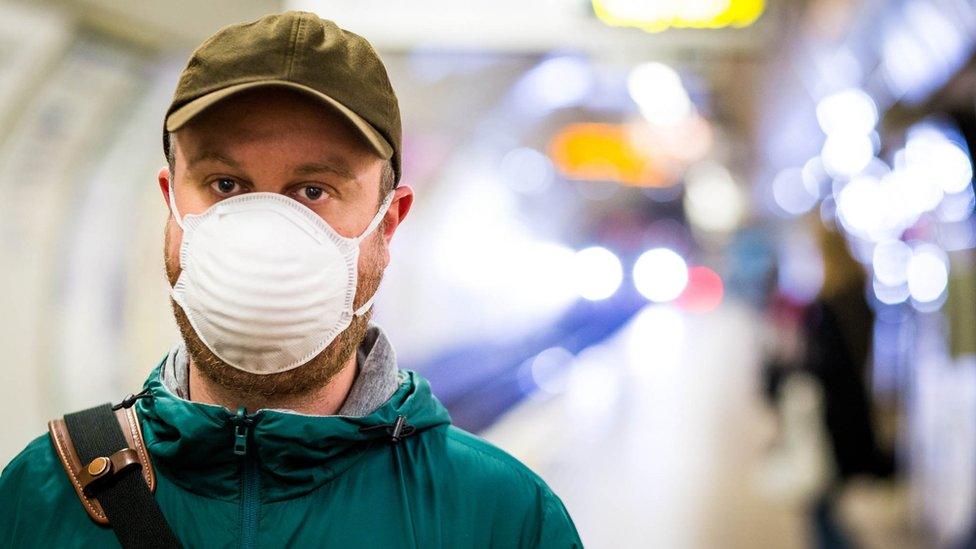Coronavirus: Answers promised after school shutdown confusion
- Published
The prime minister spoke about why the decision to close schools was taken
The UK government is promising more detail on how school, nursery and childminder closures will affect students and parents.
In a message to the nation, the Queen has urged people to come together for the common good.
Another 29 people with coronavirus have died, bringing UK deaths to 137.
A list of the "key workers" during the coronavirus crisis, external, whose children can still go to school or nursery, has been published.
The Queen, who is now in Windsor Castle with the Duke of Edinburgh, said the world was "entering a period of great uncertainty" and every individual had "a vitally important part to play".
"Many of us will need to find new ways of staying in touch with each other and making sure that loved ones are safe - I am certain we are up to that challenge," she added.
"You can be assured that my family and I stand ready to play our part."
Meanwhile, the Bank of England has cut interest rates from 0.25% to 0.1% - the lowest level in their history.
On Friday, more details are expected on how pupils would be awarded grades after some exams were cancelled.
It comes after the Scottish education secretary said exams would not take place in Scotland this summer.
John Swinney said the "unprecedented" move was a measure of the "gravity" of the situation caused by the pandemic.
It is the first time the exams have been cancelled since the system was put in place in 1888.
Public reacts to announcement that schools will close in response to the coronavirus pandemic
The UK government has already said GCSEs and A-levels in England will be cancelled, and the Welsh government has cancelled them in Wales.
Exams in Scotland and Northern Ireland have also been cancelled by their governments.
Meanwhile, Downing Street dismissed suggestions of a travel ban in London.
The prime minister's official spokesman said: "There are no plans to close down the transport network in London and there is zero prospect of any restrictions being placed on travelling in and out of London."
Elsewhere, the government's chief medical adviser, Prof Chris Whitty, said the track of the UK epidemic had followed the path "we thought likely".
It comes as Northern Ireland announced its first virus-related death, and three more deaths were confirmed in Scotland.
In other developments across the globe:
Italy's death toll from coronavirus has risen to 3,405, overtaking numbers in China, Reuters News reports.
The EU's chief Brexit negotiator Michel Barnier tweeted, external he has tested positive for the virus
Asian countries are seeing a second wave of infections from people returning home
UK Foreign Secretary Dominic Raab said a number of British nationals - estimated at about 400, were trapped in Peru because of restrictions imposed in the country
Confirmed cases worldwide have passed 220,000, while almost 9,000 people have died

LIVE COVERAGE: Latest from the BBC
EASY STEPS: How to keep safe
A SIMPLE GUIDE: What are the symptoms?
GETTING READY: How prepared is the UK?
PUBLIC TRANSPORT: What's the risk?

On Wednesday it was announced that schools in the UK would close their doors on Friday - except for vulnerable pupils or children of key workers.
Education Secretary Gavin Williamson told BBC Breakfast the Cabinet Office would release the full list of key workers later and parents not on the list would be "immediately aware" their child wouldn't be offered a place in school.
The list would include NHS workers, school staff and delivery drivers, he said.
Geoff Barton, general secretary of the Association of School and College Leaders, said he was not expecting schools to open again before September.
He said: "The peak of the virus is expected to be at exams time after which most schools start to wind down, so it was very unlikely that they would reopen in the summer term."
Schools supporting key workers' children will be expected to remain open during the Easter holidays, while officials are considering who is classed under this category.
Mr Williamson said the government was aiming to provide an "education setting" for 10% of the children who usually attend schools.
On the cancellation of exams, Mr Williamson said the aim was to issue children in England with grades in August under a "different process and a different system".
However, he said he could not "with total guarantee" say they would be released that month as "we don't how the spread of the virus will affect the examining boards and those who issue the grades".
It is possible schools in Wales will not reopen until September, Wales education minister Kirsty Williams has said.
Universities UK said pupils should not lose the chance to go to university this year because of exam cancellations.
Alistair Jarvis, chief executive of Universities UK, said if an appropriate way to assess students could be found - such as a combination of teacher assessments and previous assignments - then awards could be granted this summer.
He told BBC Radio 4's Today programme: "This would allow students to get their grades and the university admission process to go ahead this summer."
The decision to close schools was welcomed by teachers' unions but many called for more detail from the government.
Paul Whiteman, general secretary of the National Association of Head Teachers, said there were "many complicated issues to address" and "we have more questions than answers at the moment".
Parents contacting the BBC expressed concern that predicted grades might be used for results at GCSE and A-level, if pupils did not sit exams.
In other developments in the UK:
Couples who do not postpone their church wedding because of coronavirus will be allowed only two guests, the Church of England has said. It has recommended the people attending the ceremony should be kept the legal minimum of five people: the priest, the bride and groom and two witnesses.
The Football Association announces all professional football in England would be suspended until at least 30 April, external
Britain's energy suppliers are to help vulnerable customers through the crisis. Measures will include customers who cannot afford their bills getting support from their supplier
The Emperor of Japan's state visit to the UK in May has been postponed because of the outbreak, Buckingham Palace announced. Emperor Naruhito and Empress Masako were due to stay with the Queen at Windsor Castle
Transport for London announced that up to 40 Underground stations would be shut on Thursday and a reduced service would run from Friday. Mayor Sadiq Khan said Londoners should avoid using the transport network "unless absolutely necessary"
Other public transport operators, including Northern Trains, TransPennine Express, South Western Railway and National Express, have started cutting services
The BBC has announced that Sunday services will be broadcast across its 39 local radio stations in England every week for Christian worshippers who cannot get to church. The first service on Sunday at 08:00 GMT will be led by the Archbishop of Canterbury
Restaurants continue to announce closures, with Zizzi, Ask Italian and Prezzo among the latest to shut their sites
Driving tests in Northern Ireland will be suspended for three months until 22 June, although this date will be kept under review
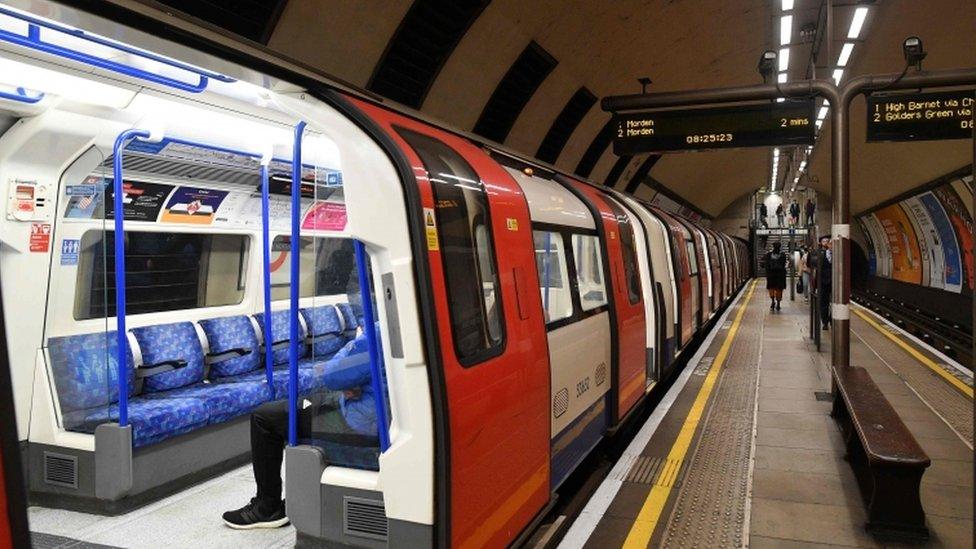
There was a drop in passenger numbers on the London Underground after people were urged to work from home and avoid pubs and restaurants
The government says it plans to more than double the number of tests being carried out in England to 25,000 a day.
Prof Whitty, speaking at a science briefing, said the UK death rate would look "quite high" until testing was increased.
He said the measures being introduced across the UK were to reduce the demand on the NHS and build up capacity to cope with the outbreak.
He added that there were "significant health and social downsides" to the social distancing measures, such as loneliness and not getting exercise.
Sir Patrick Vallance, the government's chief scientific adviser, said it was important young people also followed the advice on social distancing.
"The mixing in pubs and restaurants needs to stop and it needs to stop among young people as well as older," he said.
Meanwhile, the Army said it was "pausing" basic training, which would involve hundreds of recruits at Harrogate, Pirbright, Catterick and Winchester being sent home.
However, a spokesman said it would not affect the Army's ability to support public services as part of the "Covid support force" - which only involves troops who have already gone through basic training.
As part of the support the Army will provide during the pandemic, the number of troops at a heightened state of readiness will be doubled to 20,000 and Reserves will be placed on standby.
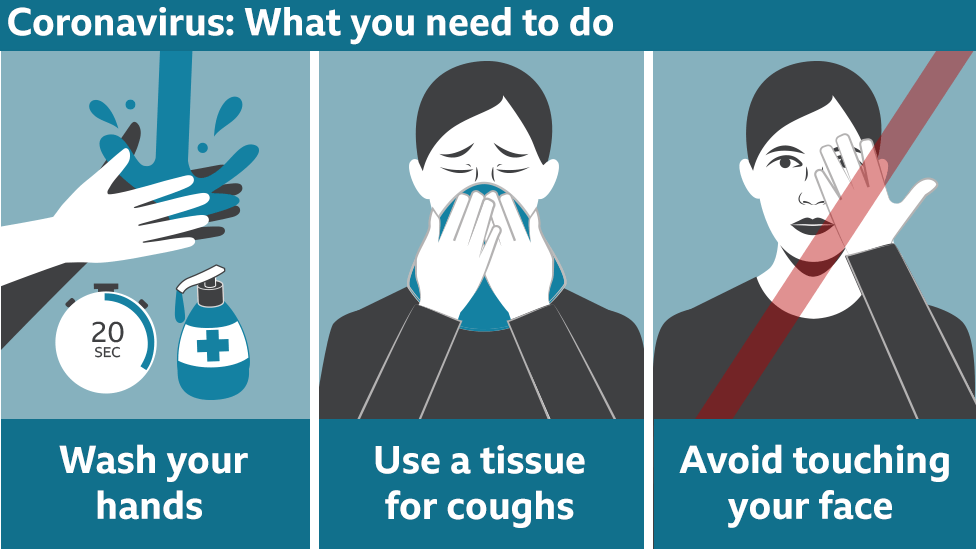
Emergency laws to provide new powers to deal with the outbreak have been introduced in Parliament.
The wide-ranging bill includes provisions for border controls, ways of boosting the NHS workforce and making it easier to register a death.
The government says the measures contained within the Coronavirus Bill, which will be considered by MPs on Monday, are proportionate, will only be used when necessary and have a time limit of two years.
But Labour is calling for a fresh vote on the legislation every six months - describing the plans as "far-reaching".
Elsewhere, Environment Secretary George Eustice has ruled out enforcing social distancing measures in supermarkets.
He told the House of Commons: "It was something that was done in Italy, with a restriction on the number of people in stores and what they found was they just had hundreds of people huddled together at the entrance to the store and it's counterproductive."

If you are affected by these planned closures you can share your experience by emailing haveyoursay@bbc.co.uk, external.
Please include a contact number if you are willing to speak to a BBC journalist. You can also contact us in the following ways:
WhatsApp: +44 7756 165803, external
Tweet: @BBC_HaveYourSay, external
Send pictures/video to yourpics@bbc.co.uk, external
Please read our terms of use and privacy policy
- Published23 February 2022
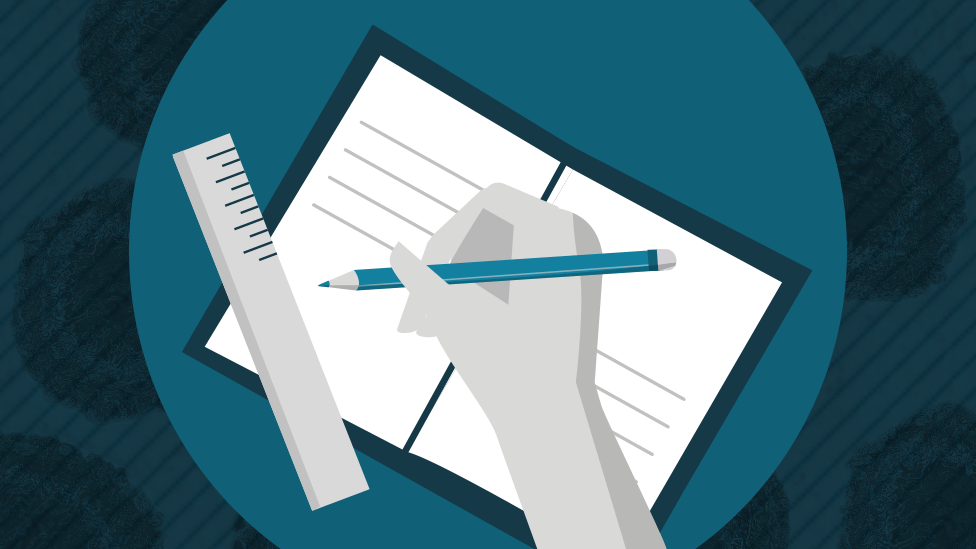
- Published19 March 2020
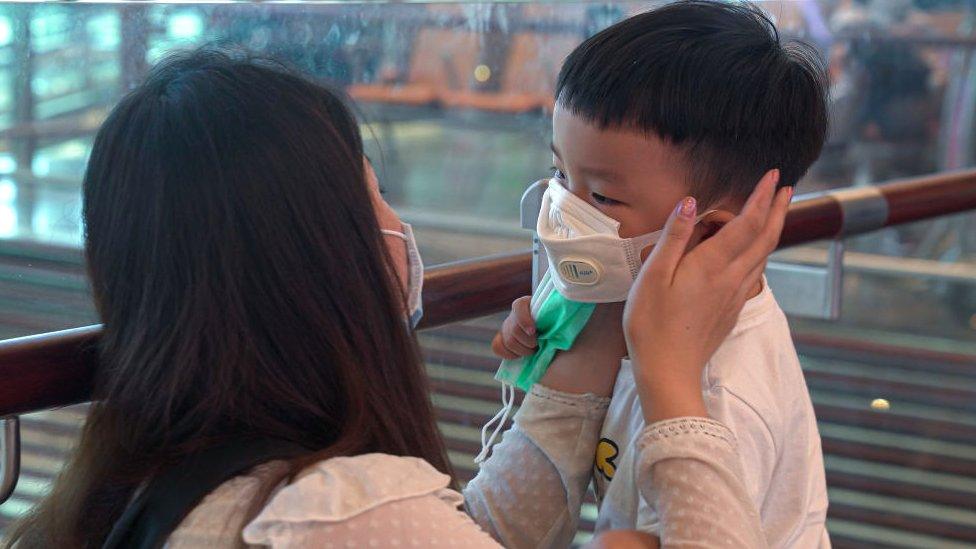
- Published6 October 2021

- Published23 March 2020
